8. Kosmos
Reha Erdem’s mystic fairy tale “Kosmos” takes its title from the main character, which is one of the most unique ones in Turkish cinematic history. We see Kosmos running away from something or someone in the snow in the opening scene, and in the next sequence, he saves a little child who is about the drown in a river.
As the film goes on, Erdem introduces Kosmos as a big-hearted dervish/philosopher who symbolizes the soul of nature. In the border city in which he takes shelter, he defends the goodness of nature against the polluted mankind. He steals to help the needy, and heals sick people with his supernatural powers.
When he is asked of what he wants, he replies: “I want love.” Against Kosmos, Erdem places law enforcers as an indicator to show how far humankind has gone away from nature. Authorities pursue him as a threat to the so-called civilization, so Kosmos must move away.
“Kosmos” includes all of Erdem’s trademarks, including the brilliant visualization of nature, a rich audio track at its best, a well-written script, and amazing performances by the actors, in an influential ode to nature and purity.
7. Yol (The Way)
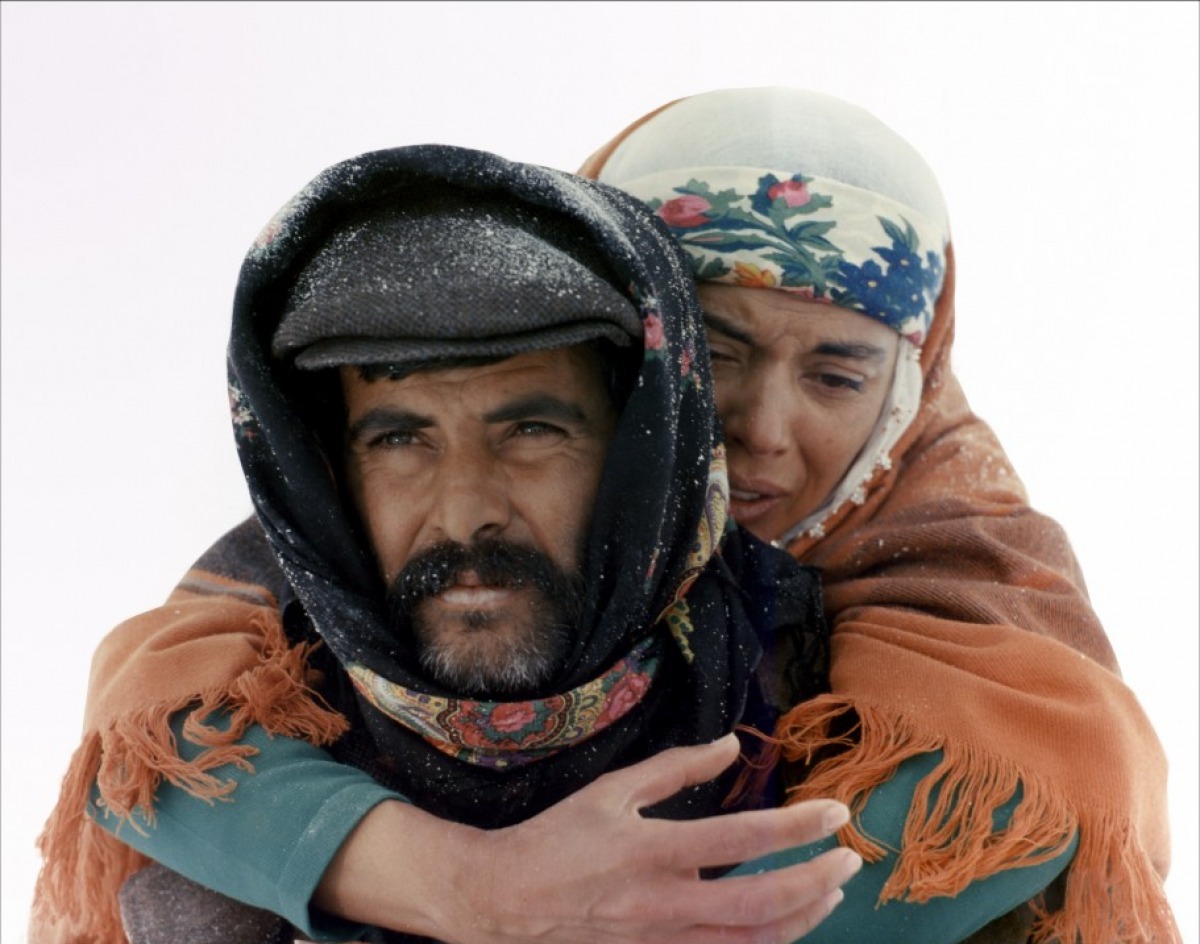
The 1982 Cannes Film Festival was one hell of a time for political cinema. “Missing” by Costa-Gavras and “Yol”, which was co-directed by Yılmaz Güney Şerif Gören, shared the Palme d’Or, as the latter also won the FIPRESCI prize.
“Yol” tells the the stories of prisoners who return to their towns on furlough. While they travel throughout the whole country, the audience witnesses the aftermath of the 1980 Turkish coup d’état. This destructive event turns Turkey into a gigantic prison. Wherever the prisoners go, they don’t feel free. Not just the government but authorities, also traditions of the rural Anatolian lifestyle, put more burden on their shoulders with every step they take.
In addition to its political intensity, “Yol” is also about how to be a man under oppressive traditions. The characters earn everything they have, and establish their lives with the help of the advantage of being a man in Turkey. But these importances imputed to manhood are also the reason for their hellish suffering.
Yılmaz Güney’s masterly writership makes “Yol” is a detailed, rich, depressing, and rough portrait of Turkish society after the 1980 coup. Just like the junta regime turned people’s lives into hell, directors persecute the audience in their comfortable seats and make them feel all the pain and misery seen on the screen every single second.
6. Susuz Yaz (Dry Summer)
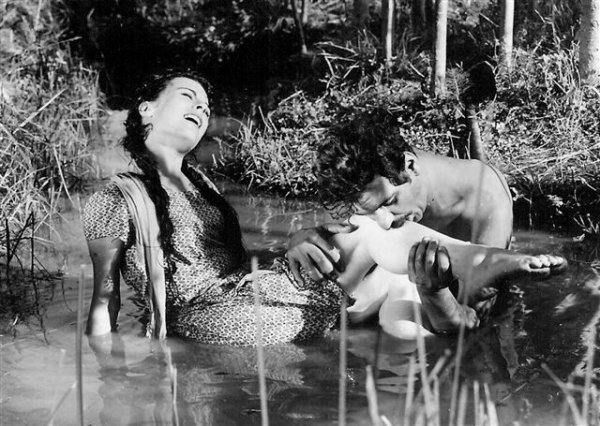
The Golden Bear winner of the 1964 Berlin Film Festival, “Susuz Yaz” is the first international success in Turkish cinematic history. In a period where Turkish cinema mostly produced shallow, profit-oriented romances, director Metin Erksan took the melodramatic form of his contemporaries to a higher level by adding a strong political subtext to it.
The film basically tells a class struggle story that takes place during a dry rural summer. As a consequence of hot and dry weather conditions, farmers living in the village can’t water their fields. The owner of the only land with a spring doesn’t let the other farmers use the water, and both sides get into a conflict about the usage of a natural resource.
In this manner, this conflict turns into a property dispute, which is one of Erksan’s favorite subjects. In addition, the director uses the obsession of the landowner to seduce the young and charming wife of his brother, who takes sides with the farmers, to strengthen this property issue.
With the help of well-crafted, sharp black-and-white imagery that makes the audience feel all the heat and bad working conditions to the bone, Erksan’s “Susuz Yaz”, recently restored by the World Cinema Foundation, is a breakthrough film that created a social realist legacy for the next generation of filmmakers.
5. Masumiyet (Innocence)
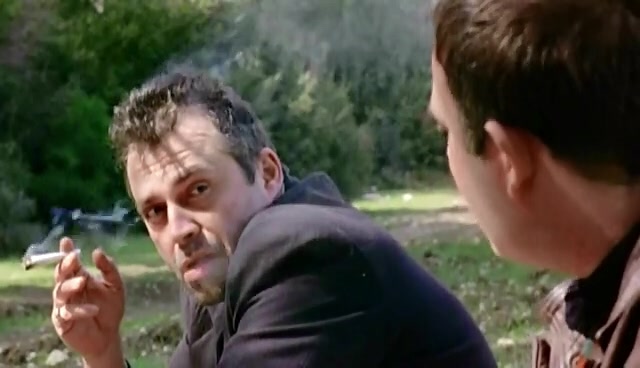
Zeki Demirkubuz, in his masterpiece “Masumiyet”, reproduces the classic Turkish melodrama with his utterly dark style. The main character, Yusuf, who is afraid of starting a new life, doesn’t want to get out of prison after completing his sentence. However, bureaucracy obliged him to do so.
While spending his time without knowing what to do, Yusuf meets a mysterious woman in a hotel where he stays, and falls in love with her. She is a prostitute and lives with her obsessive lover, Bekir, in the same hotel. Yusuf begins to observe the lives of the couple, and day by day, he falls into their dark and deadly whirlpool.
The ironic title of the film refers to a world where nobody is completely innocent or guilty. They live their lives as destiny offers them. Demirkubuz was highly influenced by writers like Dostoevsky, Sartre, and Camus, and is an expert on reflecting the dark side of the human mind to the screen. In his second feature “Masumiyet”, he show his abilities. In the hollow world of losers and aimless people, he creates one the darkest melodramas in cinematic history.
A 7-minute long monologue sequence where Bekir, played by famous actor Haluk Bilginer, tells Yusuf about his past with the prostitute Uğur is one of the most unforgettable scenes of Turkish cinema. This monologue also turns into a prequel to “Masumiyet” – “Kader” (Destiny), released nine years later, which is another masterwork by Demirkubuz.
4. Umut (Hope)
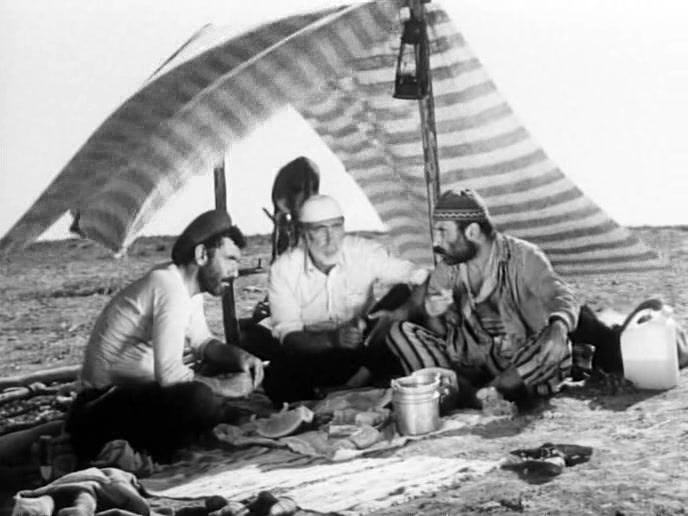
Frequently compared to Italian Neorealist classics, “Umut” points out a new era of legendary actor/director Yılmaz Güney’s career. At the beginning his acting career, he mostly played leading male characters in commercial adventure films.
After directing and playing in more serious pictures, he shot “Umut” in 1970, which is a pure social realist drama without any melodramatic elements. This tragic masterpiece lays the foundation stones of political filmmaking in Turkey.
This situation sets a parallelism between Güney’s career and Turkish cinema history. Beloved actor Güney becomes a significant figure of the socialist movement by the late 60s, as “Umut” opens a door to the other directors who made other important political films that carried Güney’s flag forward. His track record can be seen even in the movies made today.
The importance of “Umut” for Turkish cinema is not only historical, but also artistic. The script, which tells the story of a poor carriage driver whose horse is hit by a luxurious car and dies, is perfect. With Güney’s writing and acting skills, a risky subject that could have easily been turned into a cheap tear-jerker became realistic, and with outspoken narration and world-class cinematography, it became a true revolutionist classic.
3. Kış Uykusu (Winter Sleep)
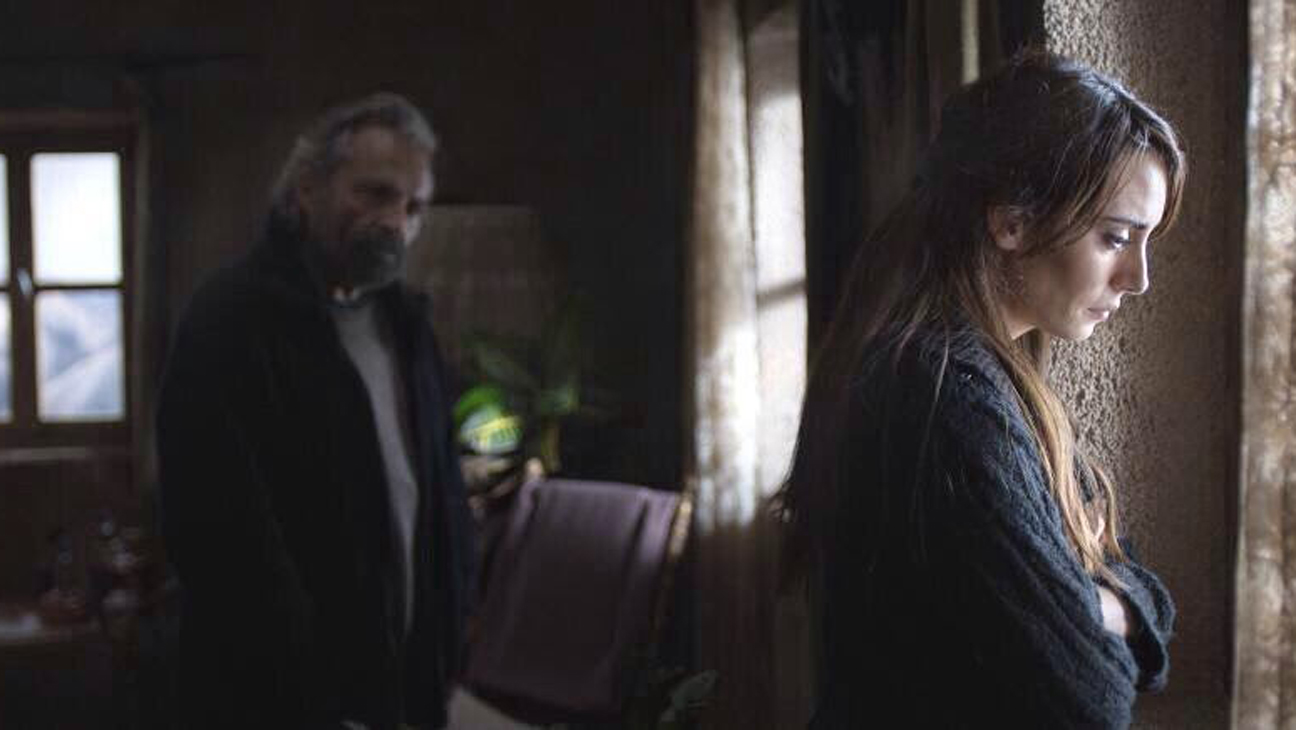
The second Palme d’Or winner from Turkey, “Kış Uykusu” basically examines the gap between the wealthy intellectuals and the poor people. Aydın, played by Haluk Bilginer, is a know-it-all and sometimes arrogant former actor. He lives with his young wife and sister in Cappadocia, a touristic Central Anatolian town, and runs a hotel there. As the three people interact with poor local people, the hotel turns into a field of contest that they face with their animosities.
Loosely based on stories from Anton Chekhov, “Kış Uykusu” is Ceylan’s more talkative work. He has proven his talent regarding movies with less dialogue in his early career. His control over dialogues mise-en-scene in “Kış Uykusu” is surprisingly riveting. It feels like he conducts his orchestra in long scenes where the characters argue with each other.
Ceylan, who is counted among the best active directors of the world, exhibits all of his skills in “Kış Uykusu”. His masterful direction, well-written dialogues, deep characters, great imagery of snowy Anatolian landscapes, and the sophisticated sociocultural study of the gap between classes in Turkish society make this film a masterclass.
2. Anayurt Oteli (Motherland Hotel)
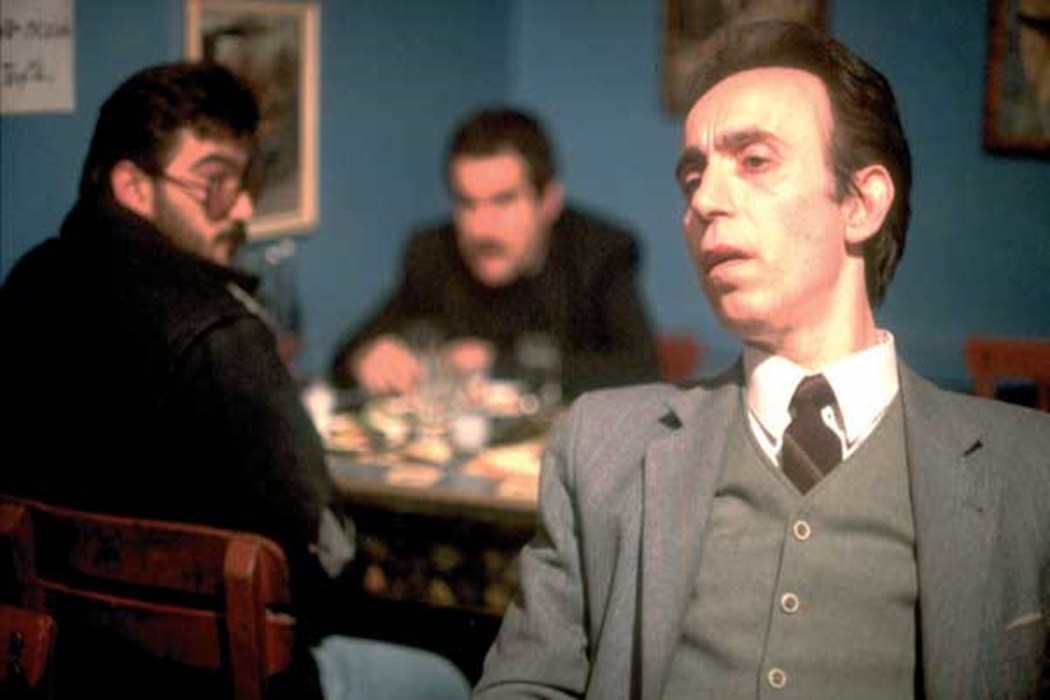
Main character Zebercet is the owner and manager of a small town hotel that entitles the movie. While he deals with his own loneliness and the boredom of his routines in this isolated hotel, one day, a charming woman appears. After staying for a night, she leaves and says she will be back in a week. Zebercet begins waiting for that woman who ignites him in every sense, but she never returns. Zebercet’s wait becomes a kind of torture.
“Anayurt Oteli” is a film that shows a sense of waiting, both of Zebercet himself and an entire generation that witnessed the establishment of the modernist, secular Turkish Republic in the place of the traditionalist, conservative, and religious Ottoman Empire. This huge change in the recent past caused a devastating refraction for people who lost their identities between these opposite lifestyles.
Director Ömer Kavur, who undoubtedly deserves to be described as an auteur, builds the narrative on this confusion aside Zebercet’s personal wait. His refined work results in a multi-layered masterpiece. This nightmarish existentialist psychological thriller/drama is one of the hidden gems of world cinema that waits for its time to reach a much wider audience.
1. Bir Zamanlar Anadolu’da (Once Upon a Time in Anatolia)
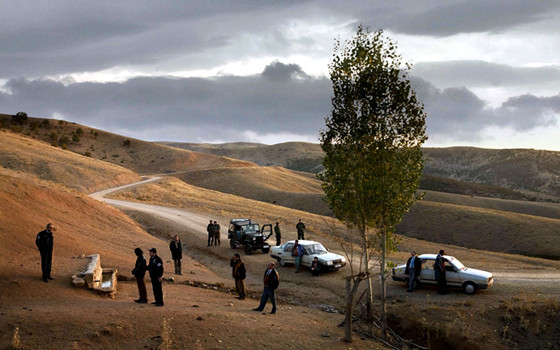
Nuri Bilge Ceylan’s “Bir Zamanlar Anadolu’da” begins with a murder investigation. In its marvelous opening sequence, a group of men, which includes reputable people like a policeman, a doctor, and a prosecutor, drives through the night to find a buried body in a small rural Anatolian town. As the search drags on, the investigation loses its significance. The main theme of this masterpiece comes into light; the power struggle of men in a totally corrupt system.
The influence of the literature on Ceylan’s work is not a secret. This fact is easily perceived in every single moment of the film. The depth of the characters, and the quiet but intense storyline make feel like you’re reading a great novel, and at the same time, watching one of the biggest films of modern European art house cinema.
The amazing usage of endless Anatolian steppe adds a suffocating, exit-less feeling to the intense narration. Even in the outdoor scenes, the characters, which are compulsorily integrated to this corrupt system, seem like they have nowhere to run and are trapped inside this open-air prison.
The balance of powers differs as the story unfolds, but there is never never a winner or loser in such a feeling of learned helplessness. The lifeless feeling can be read in the faces of every male character. Indeed, “Bir Zamanlar Anadolu’da” is a tale of a society that is already dead, that also knows this and is waiting for its autopsy.
Author Bio: Güvenç Atsüren is a half-accountant, half-film critic from Istanbul, Turkey. His writing is published in some important websites and magazines of Turkey. He is deeply interested in world cinema.